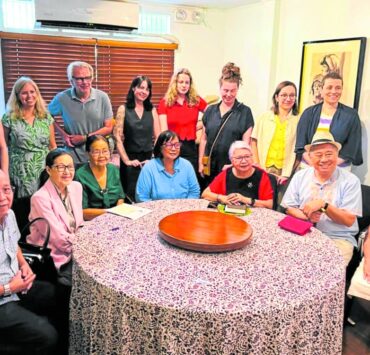I hate numbers

Ever since I was a kid, at home or school, people could get me to do almost anything. But if it involved numbers? Nope. Count me out.
Ask me to compute the total cost of something? No, thanks. Solve a math problem on the board? That might take a while … or forever. Ace a math test? Never happened.
Everyone in my circle knows math is not exactly my strong suit. My parents knew, my teachers knew, and I knew, too. And when you zoom out and look at the bigger picture of my family, it could make you raise an eyebrow.
I have a cousin who loves math so much she became an engineer. Another cousin around my age even won a big math competition in high school. I was raised by my mom and aunt, who are both fast when it comes to computing anything. Some of my relatives also have number-heavy jobs: bank officers, accountants, and math teachers.
So yes, I was the odd one out.
Family friends even said I was unlucky. And for a long time, I believed them. I doubted myself. I wondered why it was so easy for the rest of my family to do something so frustrating for me. Why couldn’t I just “get it,” like most of them did?
Even though I excelled in other things, it felt like anything that dealt with numbers, especially math, always pulled me down. At one point, I tried to turn things around. I tried to convince myself that perhaps, if I try to love numbers, they’ll love me back. Spoiler alert: they didn’t. I still wasn’t at the same level as my family. At best, I was average.
And now, here I am, in my 20s. I’ve started resenting numbers all over again. But this time, for an entirely different reason.
It’s not about solving for x anymore, or needing a calculator just to double-check a simple math answer. It’s that now, as an adult, I realized most of my life problems somehow involve numbers.
It’s not that I’m flunking a math class—I already graduated in 2023. I’ve been working for almost two years. But even with that, I can’t shake the feeling that I haven’t achieved enough. And here’s the irony: for someone who struggles with numbers, my life is now being measured by them.
I don’t have much saved in my bank account. My parents, and other people connected to us, keep asking about my salary. As an only child, and with parents nearing retirement, some relatives have also hounded me with questions, asking if I’m ready to take over their expenses. Can I afford it? Am I prepared? It’s exhausting.
And with all that stress, I’ve noticed changes in myself—mentally, physically. I’ve gained weight, and of course, some family members have to comment on it. You know, the “tumaba ka” unsolicited remarks at reunions, even when you’re already fully aware of your body. It messes with your head.
On top of that, my parents and I recently talked about the possibility of going abroad. That conversation sent me spiraling into questions: Is my current background enough? Do I have years of experience needed? Are my credentials strong enough to qualify for a job and/or education overseas?
Once again … numbers. Always numbers.
It’s like everything is answered with some kind of measurement:
“How much money do I have?”
“How much have I accomplished since I graduated?”
“How long until I get promoted?”
“How much experience is enough to be qualified for a certain role?”
“How much weight did I gain this year?”
“How much time do I have left to reach my goals?”
These questions bounce around in my head the moment I wake up and until I fall asleep. Every single day. It’s a never-ending loop of counting: my progress, my mistakes, my savings, my deadlines. This has also made me schedule everything, trying to squeeze in time to build skills, get experience, and fix my finances.
But here’s what bugs me the most: Why is it that we are always tied to a number?
Why does society measure how “successful” someone is by how much they earn, how many properties they own, how many awards they’ve won, or how many years they’ve stayed in an industry? Why is our worth sometimes even measured by our physical appearance, bodies—by weight, height, and how closely we conform to beauty standards set by someone else?
I didn’t get numbers before, but perhaps now I’m starting to slowly do. I’m starting to get how they control our lives, how they make us feel like we’re behind, not enough, not doing things right. I get how they’re used to compare us to other people, even to versions of ourselves we haven’t yet become.
I hate counting how far I’ve come. I hate calculating how far I still have to go. I hate how numbers can make a person who’s trying their best feel like they’re falling short.
I could only wish that, sometimes, life wasn’t measured so much in digits.
But that’s only wishful thinking. So yes, I’m sure of it. I really hate numbers.
—————-
Ashley dela Vega, 23, is a writer with experience in marketing and media. She also volunteers for an NGO.

















